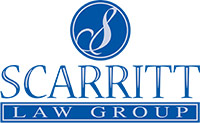Roles and Responsibilities
City councils and commissions have distinct roles and responsibilities, which may vary depending on the specific municipality. Common duties include:
- Legislative Functions: Enacting local laws, ordinances, and resolutions that govern various aspects of city life, such as zoning regulations, public safety measures, and environmental policies.
- Budgetary Oversight: Approving the city’s budget, allocating funds for different departments and projects, and ensuring financial accountability.
- Policy Making: Developing and implementing policies that address community needs, such as housing, transportation, and economic development.
- Public Engagement: Facilitating public hearings, meetings, and forums to gather input from residents and stakeholders on various issues.
- Administrative Oversight: Supervising the activities of city departments, agencies, and officials to ensure effective and efficient delivery of services.
Types of Claims
Legal claims involving city councils and commissions may arise from various actions or decisions made by these bodies. Common types of claims include:
- Violation of Open Meetings Laws: Allegations that a city council or commission conducted meetings without proper notice or in violation of transparency laws, such as the Sunshine Act.
- Due Process Violations: Claims that individuals or businesses were denied fair procedures in zoning, permitting, or other administrative decisions.
- Discrimination Claims: Allegations that the city council or commission engaged in discriminatory practices in hiring, contracting, or providing services.
- First Amendment Violations: Claims that a city council or commission restricted free speech or assembly, such as prohibiting public comments at meetings or limiting protests.


